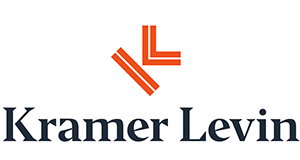IN THEIR OWN WORDS
The report’s compilation of personal narratives reveals system wide deficiencies that hamper the retention, promotion, advancement, satisfaction, and success of fundraisers of color.
FUNDRAISERS OF COLOR SHARE THEIR LIVED EXPERIENCE:
- On entering the fundraising profession: “Philanthropy does not belong to the wealthy, to the white, to the privileged. If people of color leaned into our power as philanthropic agents, we could commit genuine culture shift.
- On having to work harder to prove themselves: “Leadership discounts my role and donors take their lead from them.”
- On their experiences with implicit bias and racism: “There are very subconscious beliefs that people carry about who is the right person to interact with a major donor that are sometimes even internalized in people of color.”
- On their experiences with tokenism, microaggressions and the pressure to assimilate: “I have often been tokenized as a person of color in development or underestimated to be able to have authentic and meaningful conversations that will help further cultivate relationships with donors.”
- On how intersectionality makes the job even more challenging: “No one takes you seriously when you are young, capable and a woman of color.”
- On experiencing imposter syndrome in their relationships with donors: “When you grew up poor or lower income, it's hard to shake the feeling that you're putting on an act. On top of that, it's hard to reconcile the fact that while the organization as a whole might value DEI and intersectionality, the donor pool definitely doesn't reflect that.”
- On the sense of isolation they routinely experience: “I’m often the only person of color at a donor experience. There’s something shameful about that, but I’m used to it.”
- On how DEI issues are addressed (or not) in the workplace: “Any time I bring up problematic issues, I am told I misunderstand the culture of the institution OR ‘personal quirks’ or ‘just how things are.’ I wish DEI skills were a priority for my white colleagues because it is hard being the only voice.”
- On how they address DEI issues themselves: “Putting power to words means so much. Being able to embrace the elephant in the room and speak on these issues is important.”
- On working in a DEI supportive environment: “My organization is a multi-racial, pan-ethnic group of people of color, and we’re always learning about each other and learning the ways we internalize oppression or act it out with each other. But I have support from my co-workers on the issues I experience outside of our organization, which is a relief.”
- On what aspiring fundraisers of color will face: “Unfortunately, at some point, most likely several points, you will have to overlook disrespectful comments in your career. That being said, only you will know when the line has been crossed too far.”
- On surviving and succeeding in the profession: “You develop skills to determine when to confront and when to comply to gain what you want professionally. You determine criteria and thresholds for tolerance around ignorance and bias.”
To join the conversation, contact Cause Effective at consulting@causeeffective.org









